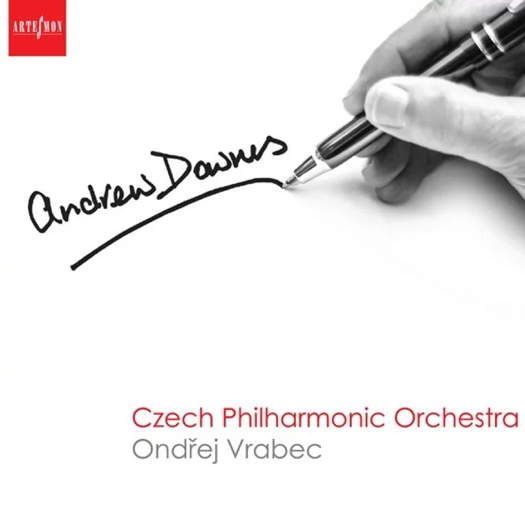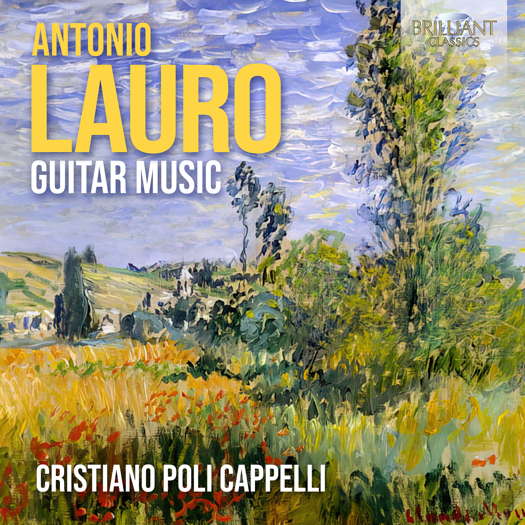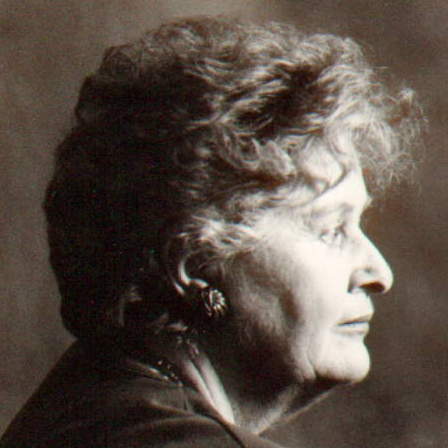 SPONSORED: CD Spotlight. On Buoyant Form - Orchestral music by Andrew Downes, heard by Roderic Dunnett.
SPONSORED: CD Spotlight. On Buoyant Form - Orchestral music by Andrew Downes, heard by Roderic Dunnett.
All sponsored features >>

Antonio Lauro Guitar Music
96627 (Brilliant Classics, CD, 2 discs)
FIRST RELEASE (1 March 2023)
Tracks: 52
℗ 2023 Brilliant Classics
© 2023 Brilliant Classics
Reviewer: Geoff Pearce
Review of Antonio Lauro Guitar Music published on 27 February 2023
Cristiano Poli Cappelli, guitar
Antonio Lauro (1917-1986):
CD1
1 Ana Cristina (Canción de Cuna)
Three Venezuelan Pieces
2 Zulay
3 Adiós a ocumare
4 Papelón
5 Ana Florencia (Canción de Cuna)
Four Valses venezolanos
6 Tatiana
7 Andreina
8 Natalia
9 Yacambú
10 Angostura (Valse venezolano)
11 Carora
12 Cueca chilena
Suite (Homenaje a John Duarte)
13 Fantasia
14 Pavana
15 Giga
16 El niño
17 El marabino
18 El negrito
19 María Carolina
20 María Luisa
21 Romanza
Sonata
22 Allegro
23 Pavana
24 Giga
CD2
1 El totumo de guarenas
2 La catira
Suite venezolana
3 Registro
4 Danza Negra
5 Canción
6 Vals
Triptico
7 Armida
8 Madrugada
9 La Negra
10 Variaciones sobre una canción infantile
Estudios en imitaciones
11 Estudio I
12 Estudio II
13 Estudio III
14 Estudio IV
15 Canción
16 Flores de la montaña
17 La gatica
18 Crepuscolar
19 Merengue
20 Momoti
21 Nelly
22 Nocturno
23 Oriente
24 Pasaje aragüeño
25 Pavana
26 Petronila
27 Virgilio
28 Seis por derecho
Born in Venezuela to Italian parents, Antonio Lauro (1917-1986) was very young when he began taking music lessons from his father. At the age of nine, Lauro, against his family's wishes, began lessons in piano and composition at the Academia de Música y Declamación. However, after he encountered the music of Agustín Barrios Mangoré, Lauro gave up his violin and piano studies to dedicate himself completely to the guitar, moved as he was by Mangoré's music. Lauro went on to become an exceptional guitarist, as well as a composer. Politically engaged, Lauro was a fervent nationalist, and it was his political convictions that drove him to celebrate, and make in-depth studies of, the origins and heritage of Venezuelan music. In 1951, Lauro was imprisoned by General Marcos Pérez Jiménez on account of his democratic convictions; Lauro would later describe his prison experience as a normal part of life for a Venezuelan man of his generation. However, imprisonment did not deter him from organising a series of concerts, as well as continuing to compose wonderful pieces that would later win him the National Music Prize, Venezuela's highest artistic award. And it was during his time in prison that he wrote two of his most important pieces: the Sonata for guitar and the famous Suite venezolana, followed by his Concerto for guitar and orchestra. His music, and particularly his pieces for guitar, transcended the confines of Venezuela's musical scene to become a hugely important benchmark for subsequent generations of players worldwide. His compositions for guitar aimed to create a synthesis of Venezuelan popular music with elaborate forms from the European tradition. He took inspiration firstly from popular and folk-inspired pieces such as the Venezuelan waltzes (valses venezolanos) and pieces written in traditional styles; secondly, from demanding works deploying the most sophisticated aspects and features of the Western compositional tradition, such as the Sonata and the Suite venezolana; and thirdly, contrapuntal styles. Lauro is a composer whose greatness is deserving of recognition above and beyond his accomplishments in the re-interpretation of music from the popular and folk traditions, hugely successful though these were. His great achievement as a composer was to absorb and synthesise, in an entirely idiosyncratic and personally creative manner, a range of highly distinct elements and to bring them to life in compositions of real substance. This recording aims to bring together all the different facets of Lauro's musical personality, while attempting to avoid the cliché of a folk-based, instinctual interpretation, instead approaching his music in a more structured manner.


